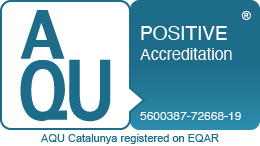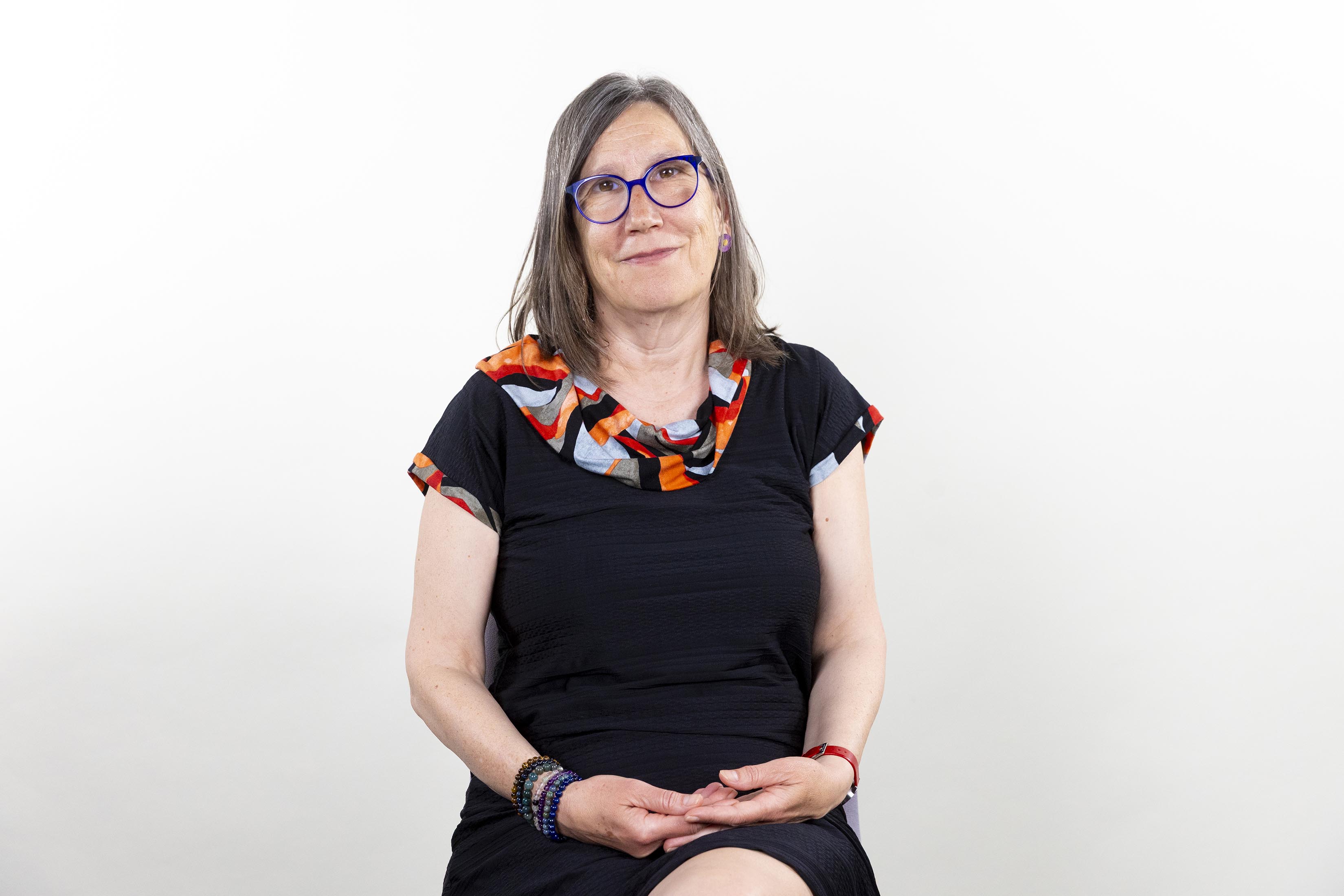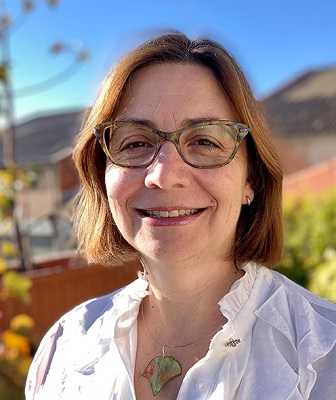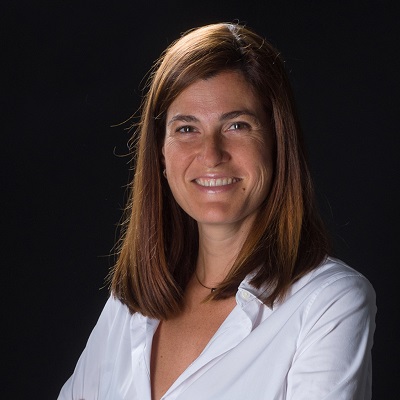Doctoral Programme in Education and ICT (e-Learning)
Presentation
The doctoral programme on Education and ICT (e-learning) focuses on the study of phenomena related to learning and teaching with the support of digital technologies, taking into account their pedagogical and technological dimension, but also the institutional and social ones, in any geographical and/or cultural scenario.
The purpose of the programme is to provide the framework and tools necessary for the development of investigators capable of carrying out relevant research projects, to advance knowledge in this field and to address the contemporary socio-educational challenges of digital society. Thus, the objectives of the programme are as follows:
a) Provide advanced training for competency development in research on the uses of ICT in education and training, in its various modalities and manifestations: in policies, organization and management; in teaching and learning processes; as well as in the development of technologies for learning.
b) Facilitate the development, through the preparation and presentation of doctoral thesis, of original research initiatives as well as scientific publications, that contribute to existing knowledge about the meaning, practices, evolution and trends and the impact of technology and digital learning on educational systems, institutions and socio-educational processes.
The doctoral programme on Education and ICT (e-learning) focuses on the study of phenomena related to learning and teaching with the support of digital technologies, taking into account their pedagogical and technological dimension, but also the institutional and social ones, in any geographical and/or cultural scenario.
The purpose of the programme is to provide the framework and tools necessary for the development of investigators capable of carrying out relevant research projects, to advance knowledge in this field and to address the contemporary socio-educational challenges of digital society. Thus, the objectives of the programme are as follows:
a) Provide advanced training for competency development in research on the uses of ICT in education and training, in its various modalities and manifestations: in policies, organization and management; in teaching and learning processes; as well as in the development of technologies for learning.
b) Facilitate the development, through the preparation and presentation of doctoral thesis, of original research initiatives as well as scientific publications, that contribute to existing knowledge about the meaning, practices, evolution and trends and the impact of technology and digital learning on educational systems, institutions and socio-educational processes.
This doctorate integrates the perspectives of pedagogy and social sciences, educational psychology and computational sciences, from a cross-disciplinary approach to research. To do this, it necessarily applies epistemological, theoretical and methodological approaches that are also diverse.
The programme is articulated in four broad-spectrum lines of research that accommodate different thesis proposals raised by the UOC professors. By engaging in a thesis proposal, doctoral candidates have the possibility to work together with researchers and/or university research groups and projects and thus progressively acquire the research skills in a professional context.
The faculty and research staff involved in the programme proceed from the different Faculties of the UOC: Psychology and Education Sciences; Computer Science, Multimedia and Telecommunication; Information and Communication Sciences; Arts and Humanities; Health Sciences; Law and Political Science; and Economics and Business.
The programme aligns with the principles of knowledge and open science, as well as with the objectives for sustainable development proposed by the United Nations in the Agenda 2030. It also encourages the adoption of a gender and inclusive, ethical and socially responsible perspective in research. In this sense, the purpose is to train researchers and professionals with a global vision, critical and committed to the collective creation of knowledge for the improvement of education and learning in today’s society.
It is recommended to access this doctorate after completing the research specialization of the UOC's Master's degree in Education and ICT (e-learning) programme, or another of a similar nature.
Competences
The doctoral programme develops the following basic competencies (as per Spain's Royal Decrees RD 99/2011 and RD 576/2023):
C1. Systematic understanding of a field of study and mastery of the research skills and methods related to this field.
C2. Conceiving, designing or creating, putting into practice and adopting a substantial research or creation process.
C3. Contributing to expanding the frontiers of knowledge through original research.
C4. Developing a critical analysis and assessment and synthesizing new and complex ideas.
C5. Communicating with the academic and scientific community and with society in general regarding the student's areas of knowledge, employing the formats and languages habitually used in their international scientific community.
C6. Fostering scientific, technological, social, artistic or cultural progress in a knowledge-based society, in academic and professional settings.
C7. Fostering open science and citizen science (in accordance with Article 12 of Spain's Organic Law 2/2023, of 22 March) so as to contribute to the status of scientific knowledge as a common good, with assessment of the doctoral student's performance of interdisciplinary activities relating to the different aspects of open science and citizen science, and the development of skills in both disciplines through microcredentials or similar.
Admission profiles
We welcome candidates who are already involved in education; this includes teachers and other education professionals from any type of university or school, who may be professionally active or not, and wish to learn more about technology-mediated education or e-learning. We also welcome public- or private-sector professionals involved in senior management, coordination, policy-making, advisory services, consulting and evaluation of e-learning projects, instructional design or development of digital education resources and environments.
The programme is open both to those interested in building a long-term career in the field of research, in either the business world or academia, and to professionals in this sector seeking to boost their career prospects with doctoral-level education.
Career opportunities
Coordination of online learning programmes for schools, teaching training, universities, vocational training or lifelong learning for businesses.
Primary or secondary school management, including the development of digital transformation plans.
Consultancy for schools or cultural/socio-educational organizations on the development and assessment of online learning projects.
Coordination of innovation or research projects associated with the use of digital technology in education or socio-education-related fields.
Consultancy for public administrations and governmental and non-governmental bodies with an international or global scope in relation to online education and training.
Senior management and consulting in the publishing and development of digital education resources and curricular materials or online learning environments.
University teaching.
Official qualification
The UOC Doctoral Programme of Education and ITC (e-Learning) is a programme that has been approved by the Spanish Universities Council, and its implementation has been authorized by the Government of Catalonia, in accordance with current legislation.
The UOC's bachelor's, university master's degrees and doctoral programmes have full academic validity throughout Spain; where such is the intention, they are qualifications to perform regulated professions, in accordance with the regulations applicable in each case.
The certificates for these programmes are issued together with a Diploma Supplement (DS), providing details of what the student studied, their results, the professional competencies obtained and the qualification's level in the Spanish higher education system; the aim of this is to facilitate recognition of the qualification and promote students' and graduates' mobility within the European Higher Education Area (EHEA).
In other countries, the validity of the official university qualifications issued by the UOC will depend on each specific country's education laws.
Official qualification
The UOC Doctoral Programme of Education and ITC (e-Learning) is a programme that has been approved by the Spanish Universities Council, and its implementation has been authorized by the Government of Catalonia, in accordance with current legislation.
The UOC's bachelor's, university master's degrees and doctoral programmes have full academic validity throughout Spain; where such is the intention, they are qualifications to perform regulated professions, in accordance with the regulations applicable in each case.
The certificates for these programmes are issued together with a Diploma Supplement (DS), providing details of what the student studied, their results, the professional competencies obtained and the qualification's level in the Spanish higher education system; the aim of this is to facilitate recognition of the qualification and promote students' and graduates' mobility within the European Higher Education Area (EHEA).
In other countries, the validity of the official university qualifications issued by the UOC will depend on each specific country's education laws.
-
Start
23 Sep 2026
-
Online
100%
-
Admission to the welcome area: March 19, 2025
-
Languages: Catalan, Spanish, English
-
Official qualification
Fully online method
World's first ever online university
Personalized guidance and support
-
The UOC, Spain's best online university
We are rated the best online university in Spain by the main university quality rankings.
Programme quality
The quality of this degree programme is endorsed by the Catalan University Quality Assurance Agency (AQU), which ensures that rigorous standards, including those demanded by the EHEA, are met.
AQU quality seal






